
OUR INTENTION
For many consumers, consuming balanced meals is one of the important factors for health, but considering to reduce salt in daily meals seems to be less of a priority. While there is high awareness on the possible health outcomes of excessive salt intake, many consumers find it hard to practice salt reduction in their daily meals. Few of the hindrances encountered of the consumers are:


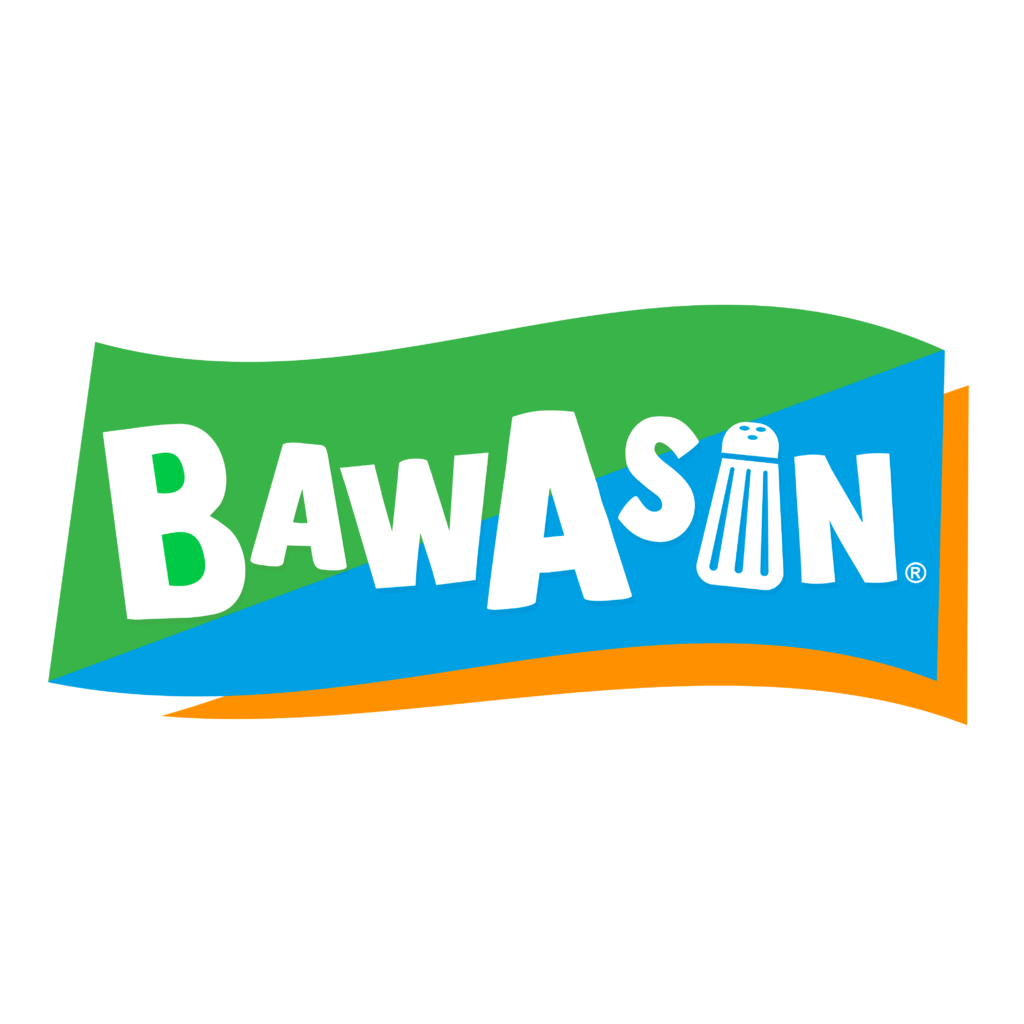
Understanding the consumers’ difficulties on reducing their salt intake, the Ajinomoto Philippines Corporation has launched the campaign “BawAsin” which is an effort that encourages consumers to reduce their salt intake without sacrificing deliciousness. It is about helping consumers to live healthier lives by ensuring intake of delicious and balanced food while reducing salt intake.
Ajinomoto Philippines Corporation will continuously utilize its unique expertise in amino acids to produce salt-reduced products and low sodium recipes that consumers can easily do at home. This effort supports the United Nation’s Sustainable Development Goal 2 and 3 for Zero Hunger and Good Health and well-being, respectively. Moreover, the company highly supports the WHO’s Global NCD target to reduce salt/ sodium intake by 30% and prevalence of raised blood pressure by 25%.
WHY IT IS IMPORTANT?

Excessive sodium intake may lead to increased risk of developing hypertension and other non-communicable diseases (NCDs) such as heart diseases, stroke and kidney diseases. In the Philippines, Ischemic Heart disease and cerebrovascular disease are the leading cause of death among Filipinos in 2019 and 2020. Furthermore, the 2019 Global Burden of Diseases reported that high blood pressure, dietary risks and kidney dysfunction were among the top 10 risk factors that drive death and disability in the Philippines.
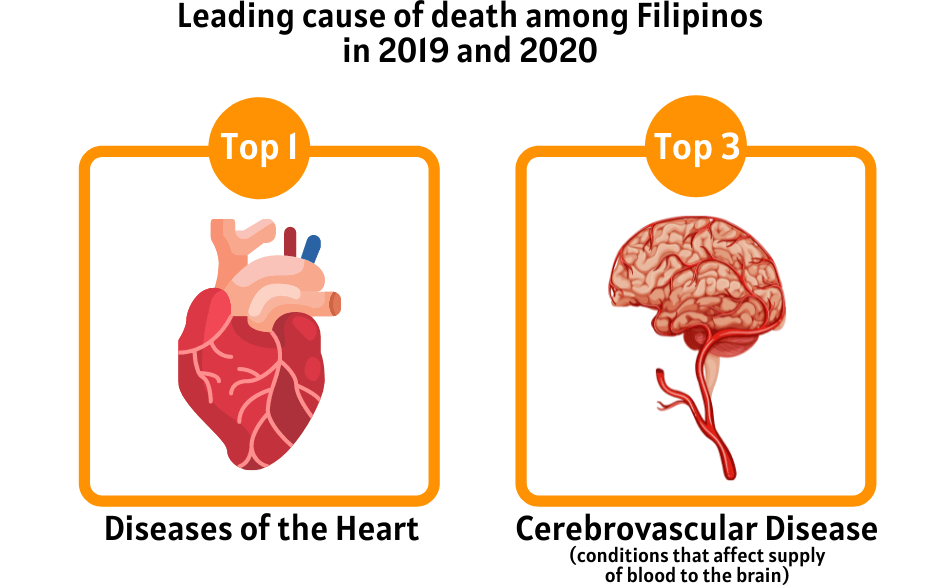


DELICIOUS SALT REDUCTION BY AJINOMOTO

MONOSODIUM GLUTAMATE
MSG only contains 1/3 of the sodium found in table salt. When MSG is used as a partial replacement for salt, it was found that it can reduce sodium intake by up to 61% in home cooking and 50% in packaged foods and snacks without sacrificing deliciousness. Moreover, when MSG is used in whole grains and vegetables, MSG can provide the savory deliciousness without adding too much salt helping to promote enjoyment of nutritious foods that people should be eating more. Extensive reputable researches has been conducted regarding MSG safety and its benefit on diet. Due to its proven safety, numerous health organizations around the world have validated its use in the food supply.
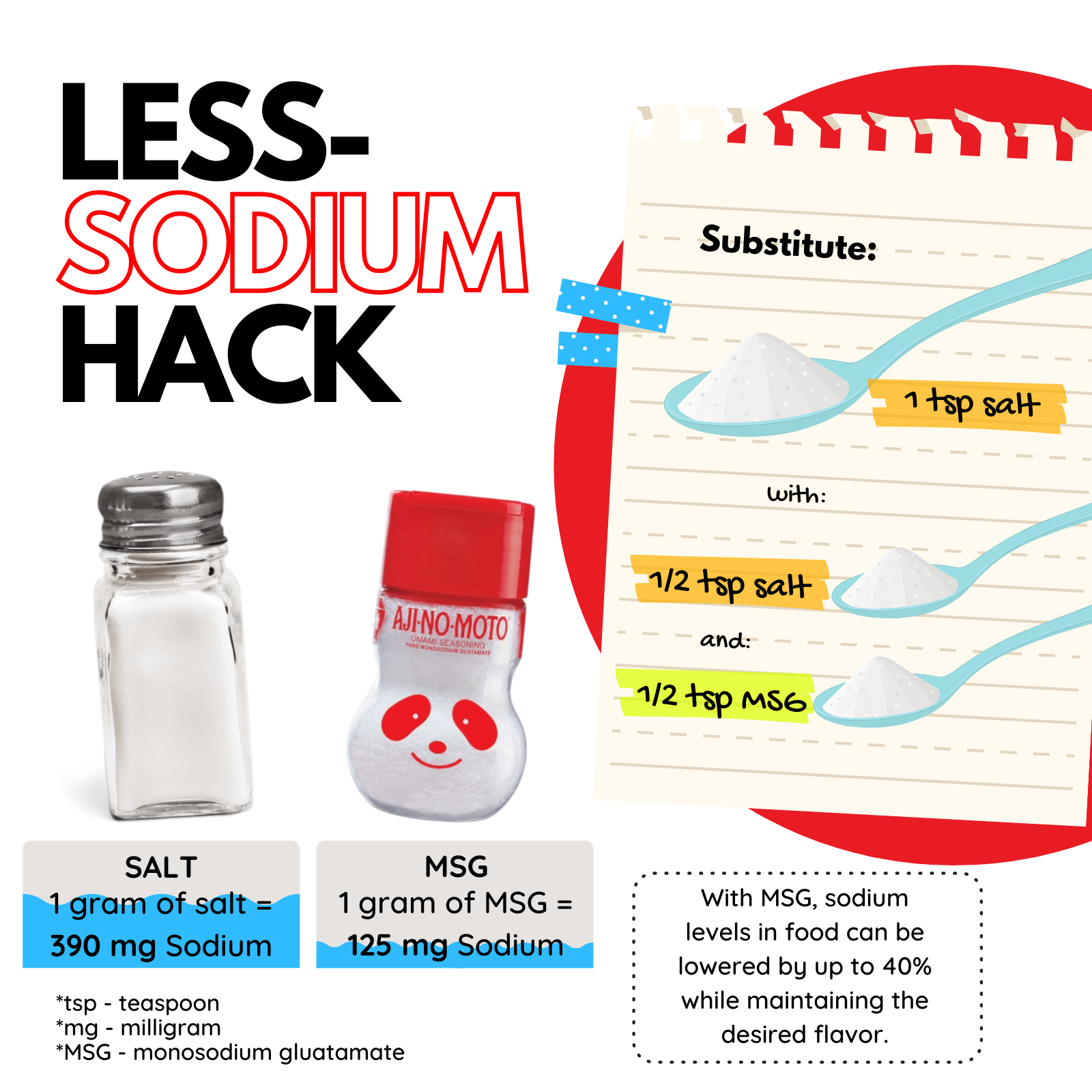
LESS SODIUM RECIPES
Helping consumers to experience delicious salt reduction, the Ajinomoto Philippines Corporation developed various Less Sodium Recipes that they can easily cook at home. Usage of salt and other condiments containing relatively high sodium were reduced and partially substituted with MSG. These recipes would allow consumers to eat better dishes with less sodium content while maintaining deliciousness. For sample recipes, follow this link: https://www.ajinomoto.com.ph/whats-new-archive/sodium-recipes/

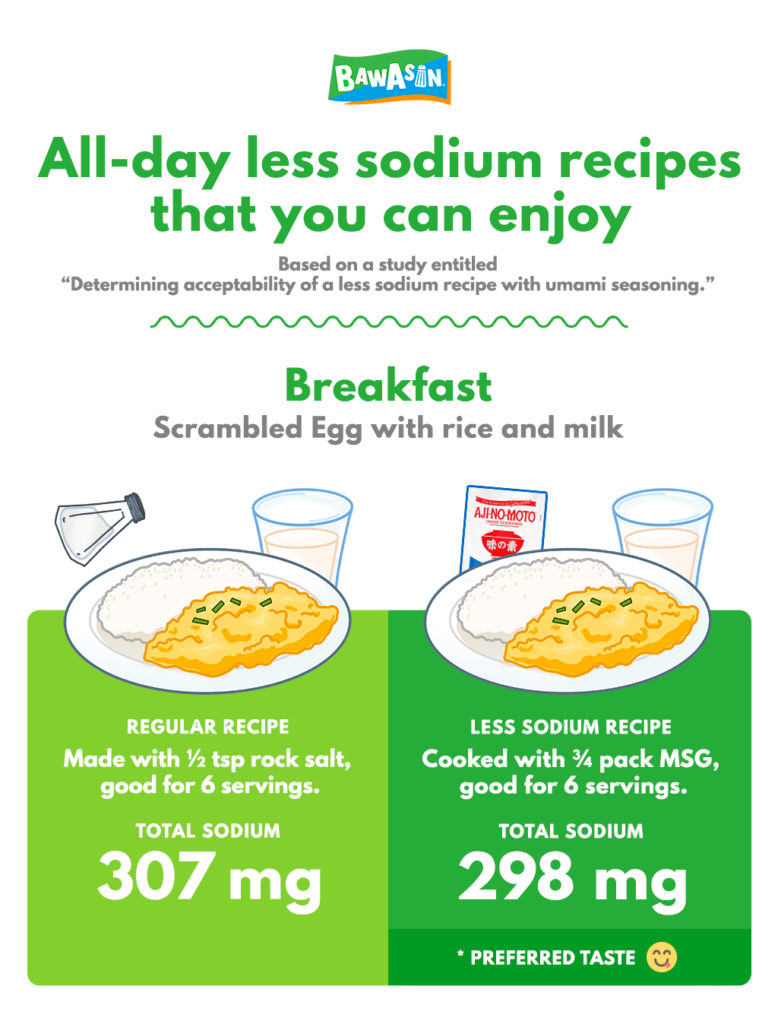
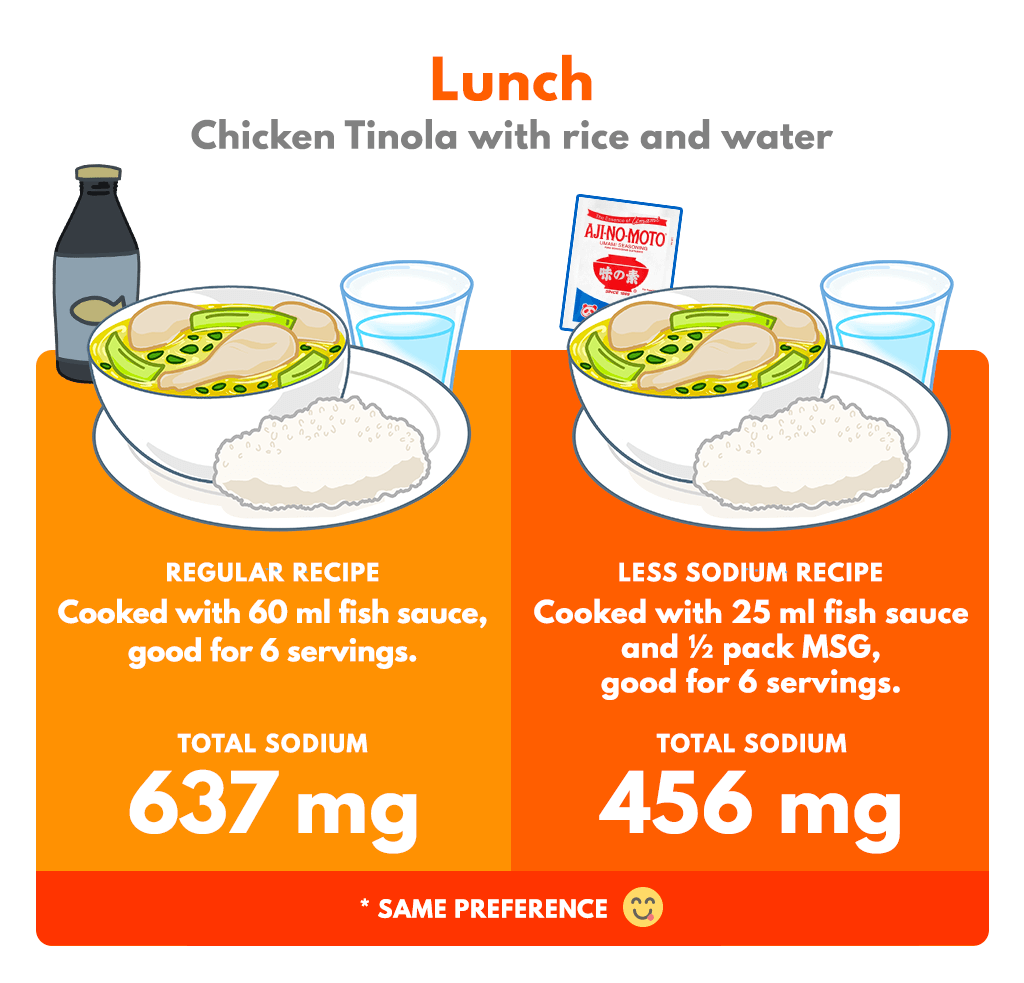
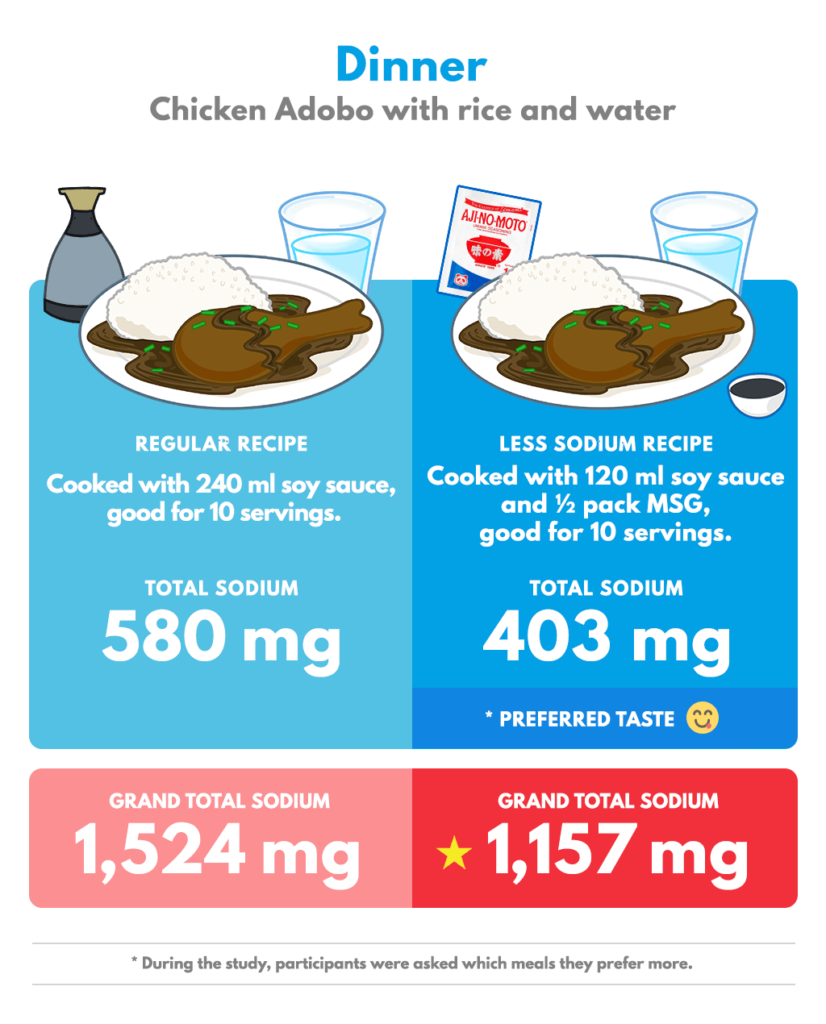
References:
Agdeppa, I. A & Custodio, M.R. (2020). Food sources and nutrient intake of Filipino working adults. Nutrients. (12)4,1009. https://www.ncbi.nlm.nih.gov/pmc/articles/PMC7230657/
Commission of the European Communities. (1991). Reports of the Scientific Committee for Food, 25th Series: First series of food additives of various technological functions. Brussels, Belgium
Federation of American Societies of Experimental Biology. Executive summary from the report: analysis of adverse reactions to monosodium glutamate (MSG). J Nutr. 1995 Nov;125(11):2891S-2906S. https://doi.org/10.1093/jn/125.11.2891S
Halim J, Bouzari A, Felder D, and Guinard JX. The Salt Flip: Sensory mitigation of salt (and sodium) reduction with monosodium glutamate (MSG) in “Better-for-You” foods. J Food Sci. 2020 Sep;85(9):2902-2914. https://doi.org/10.1111/1750-3841.15354
International Glutamate Technical Committee. (2018). Glutamte contributes to reduction of dietary sodium intake. https://glutamate.org/wp-content/uploads/2018/02/IGTC-Statement-on-glutamate-and-sodium-reduction-Revised-02.2018.pdf
International Glutamate Information Service. (2017). Fact sheet on MSG Safety.
Institute of Health Metric and Evaluation (http://www.healthdata.org/philippines)
Philippine Statistics Authority. (2021, July 5). Causes of deaths in the Philippines (Preliminary): January to December. https://psa.gov.ph/content/causes-deaths-philippines-preliminary-january-december-2020-0
World Health Organization (WHO). (2018). Global nutrition policy review 2016-2017: Country progress in creating enabling policy environments for promoting healthy diets and nutrition. Geneva, Switzerland. https://www.who.int/publications/i/item/9789241514873
World Health Organization (WHO). (2019). Conditional cash transfer programmes and nutritional status. Retrieved from https://www.who.int/elena/titles/cash_transfer/en/
World Health Organization (WHO). (2020). Salt Reduction. https://www.who.int/news-room/fact-sheets/detail/salt-reduction
